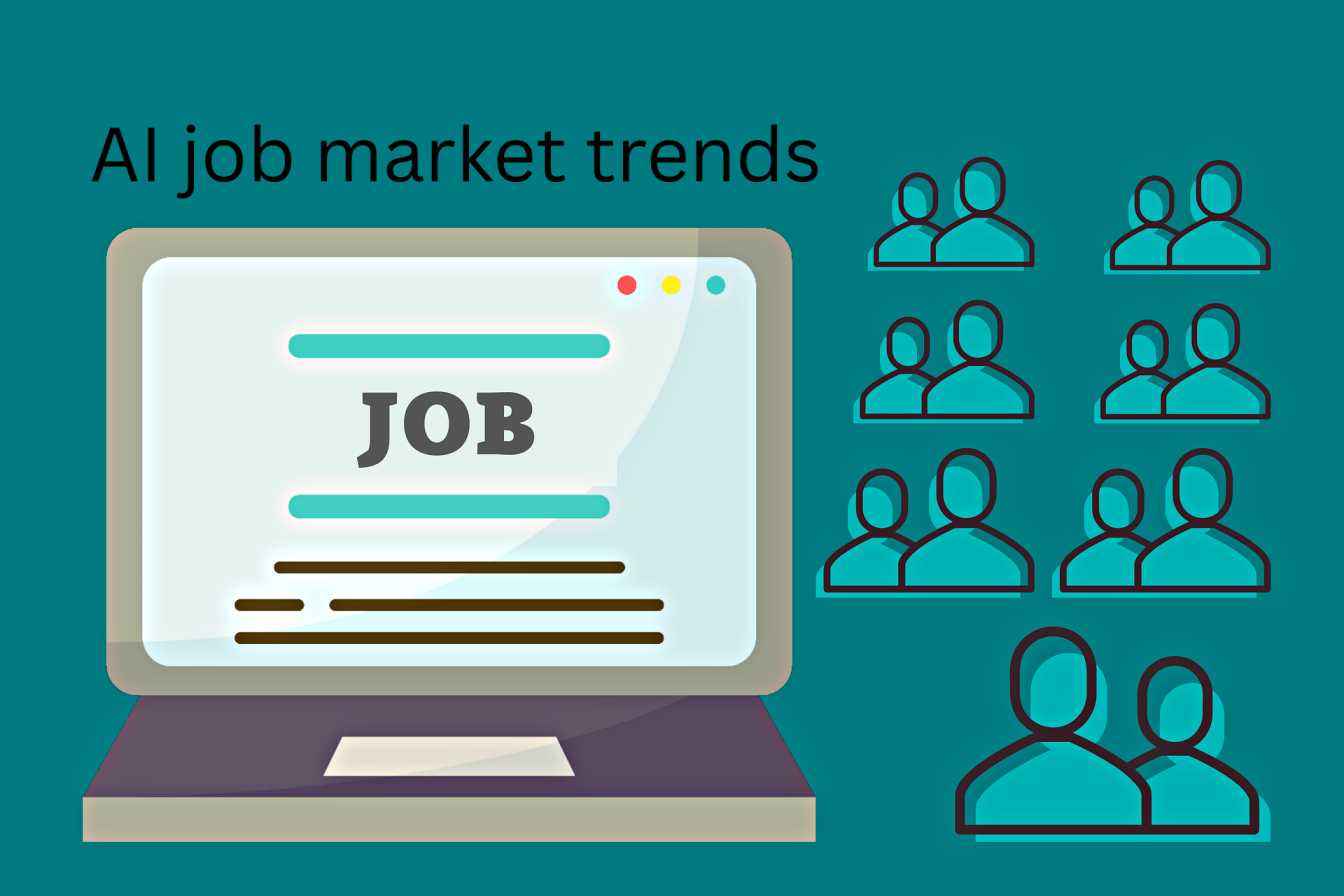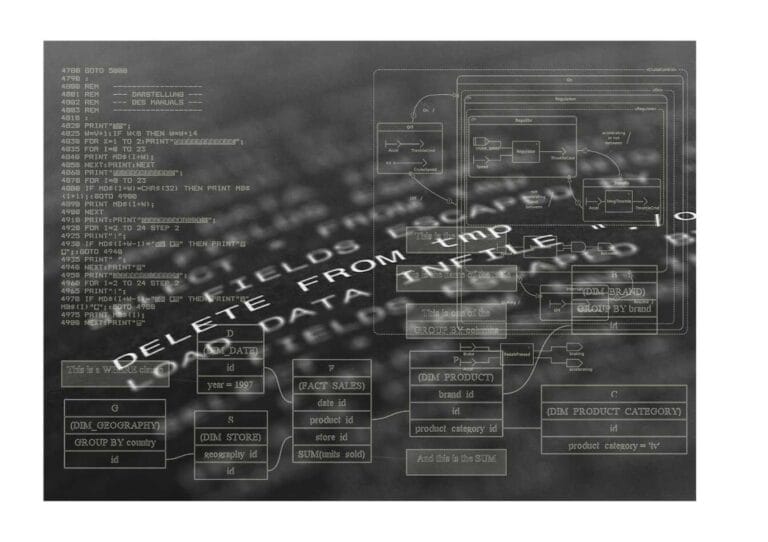Last updated on December 20th, 2025 at 06:30 am
Look, I understand, everyone’s talking about AI jobs, but the prospect of getting started sounds daunting. You’re not sure if you should get a computer science degree, if it’s too late to change careers or whether those “learn AI in 30 days” courses are for real.
Here’s the truth: Getting into AI isn’t as out of reach as it may feel. The market is expanding quickly (we’re currently on 25% year-on-year growth in AI roles), and here’s the kicker, companies care more about what you can really do rather than your degree.
Table of Contents
What Skills Actually Matter
You don’t need to be a coding prodigy overnight. The hottest AI skills right now aren’t what you think. In 2025, design thinking was No. 1 on the list, ahead of pure technical competencies. Communication, collaboration and leadership also make the top 10.
What does this mean for you? ”Companies are looking for people who can connect the dots between AI tools and real problems. You must have enough technical wherewithal to use AI, and possess the human skills that give it meaning.
Begin with AI literacy understanding what tools like ChatGPT, Microsoft Copilot or industry-specific platforms can and cannot do. Master prompt engineering (yes, it is a job now, with headcount increasing 135% YOY). Learn how to verify AI outputs and when you can trust them.
On the technical side, you’re friend is Python. Quite a bit of job description could be full of machine learning frameworks, like TensorFlow and PyTorch. But here’s the real story: All of this you can learn for free, and be job-ready in a matter of months, not years.
No-Nonsense Learning Paths That Work For Free
Forget expensive bootcamps for now. Google wants to train 2 million people in the U.S. for technology jobs no college degree required The SkillsBuild platform of IBM gives away free credentials. They have thousands of courses in AI that you can audit for free.
Here’s a good place to start: Start with Google’s “AI for Everyone” on edX (four weeks, 2-3 hours per week). Then enter the IBM course on Coursera, “AI Foundations for Everyone” which includes three courses covering artificial intelligence basics, IBM Watson and how to build a chatbot without coding. Total time? Roughly three months at two weekly hours.
Figure out if you prefer a hands-on learning approach: Check out some of Kaggle’s micro-courses to learn on real datasets. You will create real projects for your portfolio as you learn. If you’d like to go even more structured, Harvard provides “Introduction to Artificial Intelligence with Python” via the edX platform.
The key? Choose and commit to a path. Don’t course-hop.
Developing Your Portfolio (This Is Non-Negotiable)
You cannot just put classes on your résumé. You want projects that demonstrate you can use what you’ve studied.
Find free datasets on Kaggle, GitHub or Data. gov Build something simple but useful a chatbot, an image classifier, a tool for sentiment analysis. Keep a record of everything: your process, the walls you stumbled into, how you got unstuck.
3 good projects beat 10 half completed tutorials any time. Managers want to know you can take an AI tool and force it to solve a problem that actually exists.
The Jobs You Should Target
If you are just starting out, don’t just apply to roles called “AI Engineer.” Consider roles such as AI Integration Specialist, AI Content Creator (up 134%) or Prompt Engineer. This is a new kind of job, one that prioritizes creativity and domain knowledge as much to even more than coding chops.
Industries hiring the most? Tech, health care, financial and consulting companies. Companies such as Accenture, Deloitte and KPMG are beefing up on AI talent because they are helping other businesses transform.
Here’s some good news: requirements for a formal degree fell from 66% to 59% for AI roles. A fancy diploma pales in comparison to the weight of your portfolio and demonstrable skill.
What Nobody Tells You
The AI job market is not just about finding a role it’s about remaining relevant. Demands are changing 66% more quickly vs the same time last year. This is a pledge to becoming a lifelong learner, not just the short burst of creativity that goes with doing it once and moving on.
But there’s an up side: AI-skilled workers make 56% more money than jobs with similar requirements that don’t actually require AI. The median AI wage reached $156,998 in early 2025. The effort pays off.
Start small. Pick a free course this week. Make your first little project by next month. It is that you have your first AI-adjacent role within three months. You don’t have to wait until you’ve got it all figured out you just need to begin.
FAQs
Is a computer science degree necessary for AI jobs?
Not anymore. Degree requirements are falling away among companies in search of practical skills and project portfolios. Some of the most successful AI professionals do not have technical backgrounds they learned via online courses, certifications, and real projects.
Concentrate on developing skills you can prove instead of pursuing expensive degrees.
How long does it take to learn AI for a career?
It’s all over the map, but people who have used AI tools to transition careers report a 47% faster move and are 3.1x more likely to find success.
Realistically? Three to six months of concentrated study (10-15 hours per week) can prepare you to enter the job market for entry-level or adjacent roles. Intensive bootcamps can condense this and self-paced learning may be longer.
What if I’m not technical – can I still have a career in AI?
Absolutely. New roles such as: AI Ethicist, AI Product Manager, Conversation Designer and Integration Specialist require more domain expertise, communication and strategic thinking than hard coding skills.
If I can offer only one learning target, it’s to develop AI literacy understanding what AI can do, how you might use AI tools in your field and how to work with them. In fact, your non-technical background might just be your advantage.
I’m a technology writer with a passion for AI and digital marketing. I create engaging and useful content that bridges the gap between complex technology concepts and digital technologies. My writing makes the process easy and curious. and encourage participation I continue to research innovation and technology. Let’s connect and talk technology!



